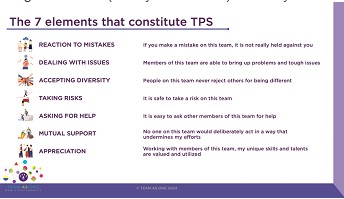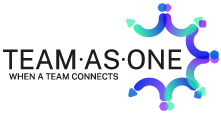Psychological safety is about speaking up, voicing your opinion, sharing your mistakes, admitting you don’t know something, being yourself, taking risks, proposing out-of-the-box ideas, challenging the status quo and much more. The list could go on and many resources exist that describe what a world with psychological safety looks like.
But these actions or behaviors represent only half of the picture. Newton’s 3rd law says that for every action (force) in nature there is an equal and opposite reaction. I extend that to apply to team psychological safety: every action generates a reaction, and it’s this reaction that determines what happens next.
Admitting a mistake is not difficult in itself. There are plenty of videos on TikTok about parents showing off what their mischievous kids came up with as fun activity. The kids don’t have a problem to admit what they did. In fact, they often are excited and proud because in their young naivety they think they did a pretty cool thing. At least the first time.
What is key is the reaction they get from the adults in the room. If they get reprimanded, yelled at or punished, the enthusiasm for continued creative exploration will most likely take a dent and for sure next time they get caught, they won’t be as excited to admit what they did. If the parents engage in a conversation about what happened, why they did it, what the consequences are and what this experiment taught them, they will maybe be encouraged to explore their creativity in less harmful ways.
It starts from a very young age and it continues throughout the formative years: what we do is influenced by the reactions from those around us.
 In a professional setting, knowledge workers are expected to share their ideas, solve problems, be creative and much more. They are not hired for their manual skills. Henry Ford reportedly complained “Why is it every time I ask for a pair of hands, they come with a brain attached?” because he needed just labor to execute predetermined and repetitive tasks. More than a century later, people are expected to bring their brain to the workplace, rather than their hands. And they know that.
In a professional setting, knowledge workers are expected to share their ideas, solve problems, be creative and much more. They are not hired for their manual skills. Henry Ford reportedly complained “Why is it every time I ask for a pair of hands, they come with a brain attached?” because he needed just labor to execute predetermined and repetitive tasks. More than a century later, people are expected to bring their brain to the workplace, rather than their hands. And they know that.
An engineer knows that they will have to solve problems, be creative and deal with complex issues. Why is it that despite all the education and experience, we often hear from management that they want their “brains” to speak up more, challenge or contribute? That is in fact the only thing an engineer can do; very few (including me!) would be capable of assembling an electronic circuit – for example.
It is not that they forgot to bring their brain to the workplace. It is simply that they have been conditioned through years of upbringing not to speak up, or not to challenge, or not to do what is not expected. It’s the reactions from those around them that have impacted their actions and have molded how they show up and contribute as professionals. Undoing what has been built up over years does not happen with a simple snap of the fingers.
It is only a different set of reactions that will make clear that the environment they are now engaging in as professionals is genuinely different from their upbringing or other experiences. This is key to developing team psychological safety: it is the reactions from the team leader as well as the other member of the team that make all the difference and that determine how this team member will contribute in the future.
In a nutshell: don’t tell folks to speak up, be creative or share their mistakes. Rather, see how you and the others in the team react when they do. That is where the breakthrough lies!
Peter Cauwelier
TEAM.AS.ONE
2024

